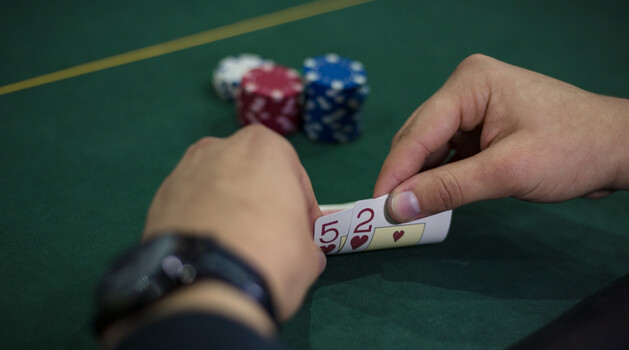
How to find a fish player
How do you spot a fish at the gaming table? Many people ask themselves this question as it is the fastest way to make money when playing poker. But it’s not always easy; you have to know who the poker player is. So what should you look out for?
Limp
What is indicative of a phish behavior? If a poker player enters the pot with a limp, even though he’s the first one to make a decision after the deal. That means he’s not the most experienced poker player.
A good player won’t act like that right after the deal, and he’ll be the first to do so. It doesn’t bring any profit even in a rake situation. That is, the limp indicates that he is a bad player and a target for others.
It is important to note the fact that the fish will not fold, and more often than not just call. But it is possible to win much easier, most banks will be due to a simple flop call. But it’s important to note that the isolation raiser must be raised. More often than not over 5-6B, in which case the pot will be big.
But there are players at the table who keep a close eye on things and realise that the chip is already on the hook, so it’s possible to capitalise on this. So you have to be prepared for another more competent opponent.
Problems with size
It’s easy to spot a phish when making an unusual betting call on an overflop. Often an increase of 2-4B is encountered here, but if the bidding starts with an increase of up to 10B, it’s a fish.
There’s a standard size of raid on the rebet, which will be 8 -12B. However, if a player immediately contributes 20B, then you can be sure that the opponent is a fish.
What to do about such a player? The special thing is that fish rebets aren’t too big, so you can call just about anything with a full open-raise range.
Another good thing about this situation is that the fish will only raise if he has a strong hand. But if you have confidence and an understanding of your opponent’s behavior, you can outplay him.
But there are times when the phish will use the opposite method and simply go for too big of a rebet. But here, too, one must be straightforward and discard weak hands. Only continue playing when the hand is strong enough to go all-in.

Constant Talking
Chatboxing often points the way to easy money. Professionals hardly ever use chatboxes, the exception being playing with friends. But phishes are there all the time, so you can take advantage of it and follow the poker player’s play.
Calling Stakes
Pisces almost always call, and it doesn’t matter what they’re holding. In fact, there are always many players at the poker table who decide to back a bet, even if the hand is bad.
Some say that dealing with such players is difficult. You have to be careful and that’s true, bluffing may not work. There are players who simply cannot be bluffed. But it’s not a skill at all, it’s just a method of manipulation, in order to gain an advantage.
The point of confrontation is to discard half-bluff hands, and play only sure highs or pairs. Calling a phish will be almost constant, and this will give more confidence in one’s own abilities.
The most popular articles
-
 Side Bets in Baccarat: A 3-Step Sanity Fil...
Side Bets in Baccarat: A 3-Step Sanity Fil...Side bets in baccarat are marketed as small add-ons, yet in practice …
-
 Blackjack Surrender Rule: When Giving Up I...
Blackjack Surrender Rule: When Giving Up I...Surrender is one of the most misunderstood options in blackjack because it …
-
 Shuffle machines and continuous shuffling ...
Shuffle machines and continuous shuffling ...Blackjack looks like a simple game of 21, but what happens before …
